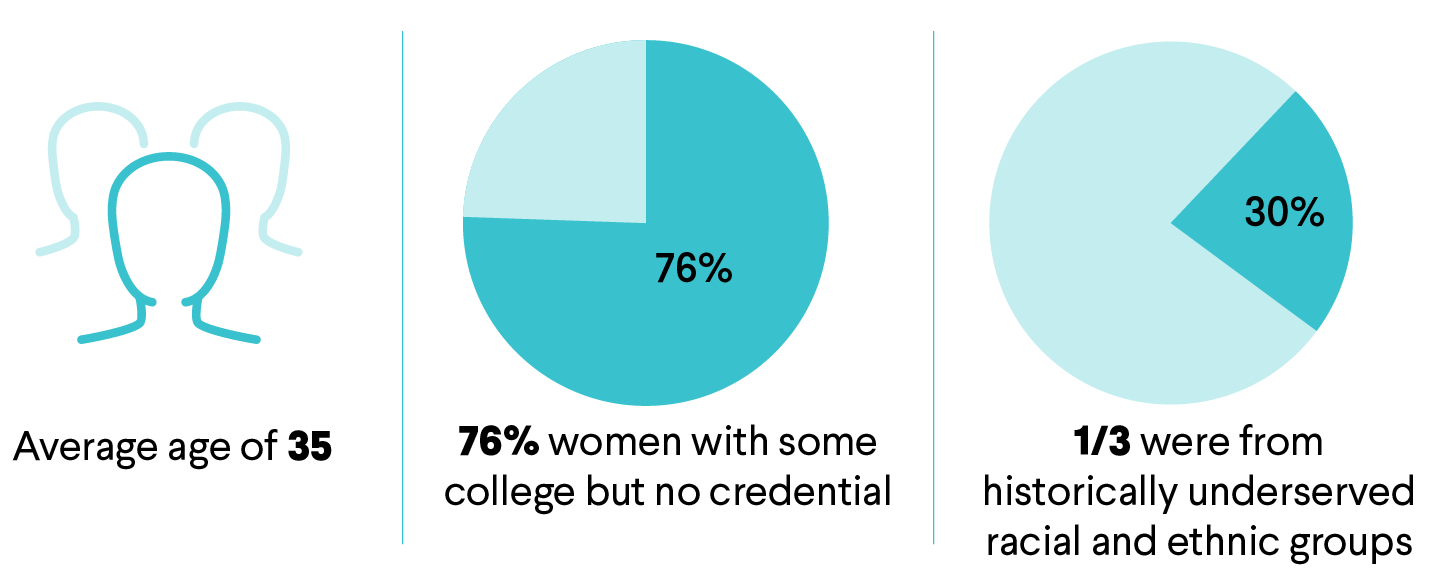
Tina, a 35-year-old mother of two, works part time in a retail store earning $15 per hour. She is taking courses at a local community college hoping to earn an associate’s degree. While she feels good about pursuing a credential so she can earn more to support her family, she is often stressed by the balancing act, with roles as mother, student, and worker. She is hoping that a degree will help her move into a higher-paying position, but she would like more advice about what degree would put her in the best position to advance. Tina has been able to secure a child care subsidy for her preschool-age child, but she decided to drop one of her classes so she could take care of her school-age child after school.
Tina is a composite of the many community college students we surveyed. About 43% of community college learners are 22 or older, and one in five students are parents, as noted in research by the American Association of Community Colleges and Child Trends. Our research confirms what other studies have shown about the needs and experiences of adult learners: most seek college credentials to advance in their careers and benefit from intentional and structured career guidance that occurs at the start of their college journey, rather than at the end. Adult learners, like many community college students juggling work, caregiving, and school, often find that the academic and non-academic support services offered are not tailored to their unique needs, lived experiences, perspectives, career goals, or ways of engaging.




